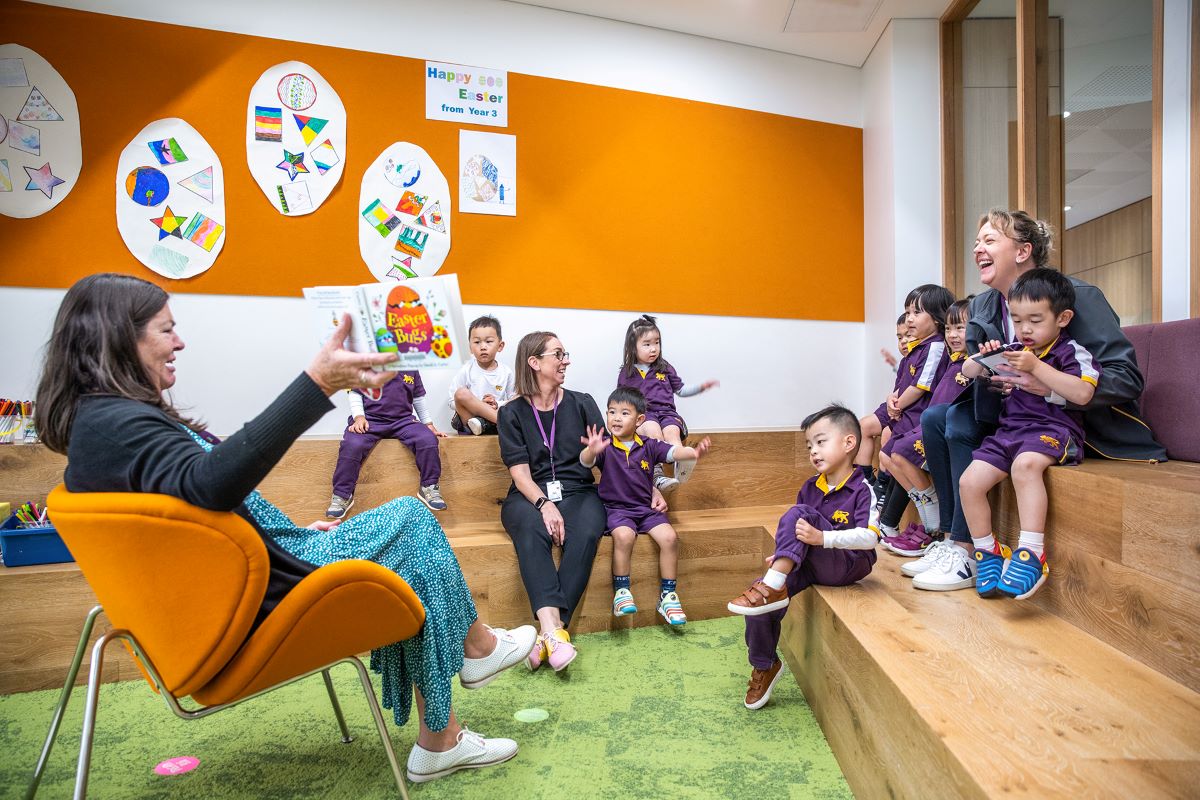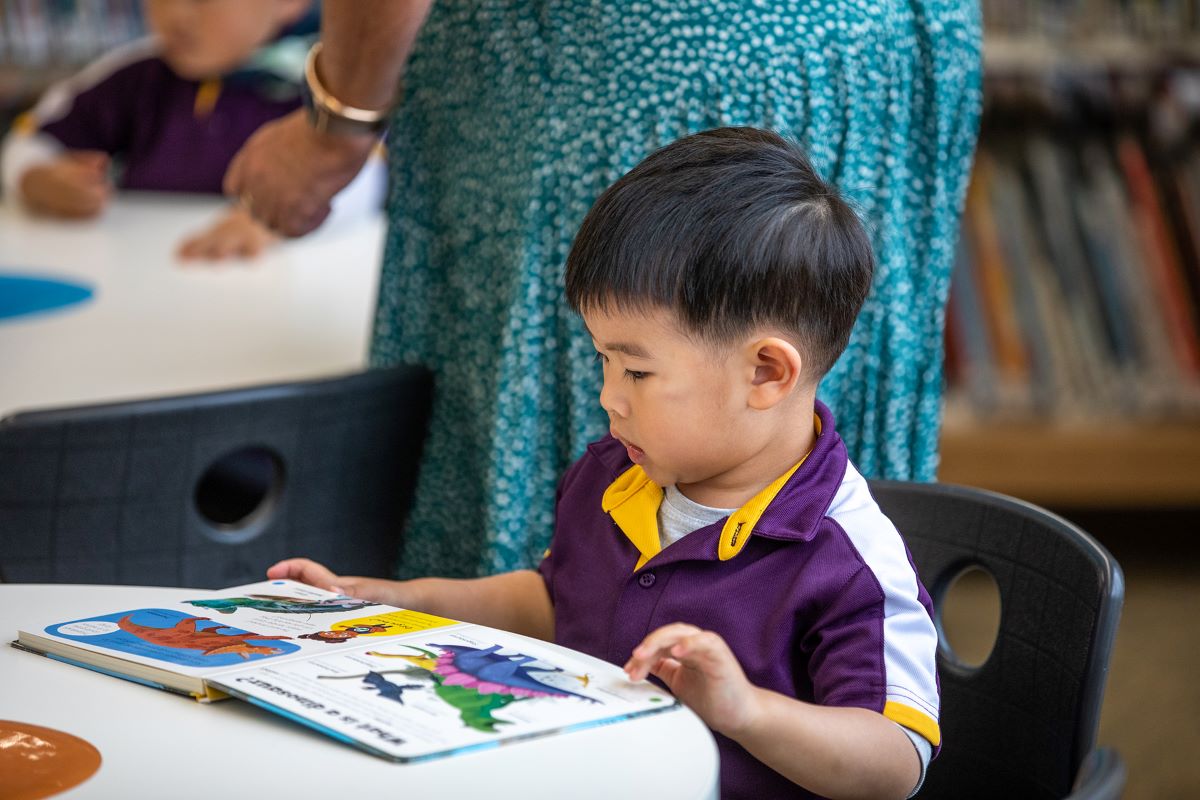
Learning to read, and early mastery of literacy and numeracy, is fundamental to academic achievement and developing a lifelong love of learning. At Wesley, we deliver explicit literacy lessons each day in our Junior Schools (Prep to Year 4) through our comprehensive phonics-based literacy program, ‘Sounds-Write’.
We begin by investigating the relationship between the sounds of words and letters as a whole class. This is followed by instructional sessions with a targeted focus, led by an educator with smaller groups of students. Lessons can therefore be tailored to each student's level of understanding, helping to consolidate core literacy skills. For students with English as a second language, this repeated exposure to the sounds of words is particularly effective.
‘There has been quite a lot of discussion in the media about the most effective ways in which to educate and teach our children, particularly in regard to reading,’ said Ben Dooley, Head of Junior School at the Glen Waverley Campus. ‘Research consistently underscores the efficacy of systematic phonics instruction, decoding and comprehension strategies in primary school education. These evidence-based practices empower young learners to navigate the intricate world of language, ensuring they not only read words, but comprehend and derive meaning from them.’
Teaching at Wesley is informed by the ‘science of reading’, a body of evidence about how children learn to read and the instructional strategies that facilitate this. ‘It’s not merely a teaching tool; it’s a commitment to equipping your children with essential skills that will impact the rest of their lives,’ explains Ben.

Parents and carers play a pivotal role in encouraging children to engage with books in the home and find joy and delight through reading.
Five ways you can support your child’s reading at home
- Read aloud together: Share the joy of reading with regular read-aloud sessions exploring a range of books. 20 minutes per day spent reading with your children in the morning or evening is ideal. Regular practice and repetition of words leads to improved reading and comprehension.
- Create a reading-friendly environment: Foster a love of books by making them easy to access and create a cosy corner for reading at home.
- Encourage questions: Cultivate curiosity by asking your child questions about the story, the characters and the pictures. Encourage your child to do the same. This helps your child develop reading and comprehension skills – reading for meaning.
- Celebrate progress and growth: Help foster a positive attitude towards reading by acknowledging and celebrating progress. Use language that validates the efforts your child is making, for example ‘I can see you really trying to sound out that word; that effort was really good.’
- Model reading: You are the first teacher your child has, and as we know children often imitate their parents and carers. Let them see you enjoying a good book regularly.
Reading every day can help your child even before they have started school! Building a solid foundation in literacy in these early years will develop the skills and build the confidence needed to carry students throughout their entire educational journey.
